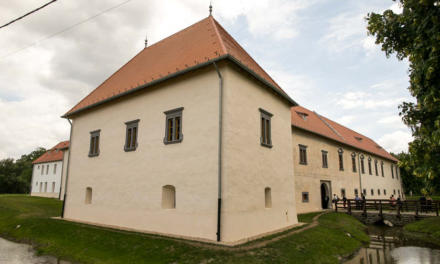It could mean a new division of power - this is probably the biggest obstacle to the adoption of the Slovak minority law, which has been talked about a lot but has not yet seen the light of day. And the government office only came up with a list of objections, as an explanation as to why the government is not fulfilling the commitments in its program.
When the new government, which emerged from the 2020 elections with a constitutional majority, was formed, experts dealing with minority politics and the interested public were surprised to learn that the program of the government led by Igor Matovič included two commitments that even the Hungarian parties in government positions did not. they were able to achieve: the adoption of the law on the legal status of minorities, and the creation of the minority office as a result.
What positive effects would this change in law and state administration have for minorities?
First of all, we can mention the possibility of permanent interest representation, and the emergence of more decisive elements of self-determination and autonomous decision-making in decisions that most affect minorities. This would also mean that even if there is no Hungarian political party in the parliament, the representation of interests is still ensured, and this would also apply to other minorities. The law would ensure a much greater participation of the elected bodies of the minority communities in the areas of education, culture, language use and other topics primarily aimed at strengthening the minority identity.
Vague reasons
Since the change of regime, the "lack of political will" has always hindered the birth of the minority law, but in March 2020, the coalition government undertook it.
Nevertheless, in the spring of 2023, it is almost clearer than the sun that these promises will not be fulfilled, even though the draft prepared by the office of the Commissioner for Minorities, László Bukovszky, has long been ready, which would settle the decades-long constitutional failure. The Basic Law refers to the fact that the situation of minorities must be regulated by law.
The set of objections formulated by the government office includes, among other things, the following:
– the proposal is unconstitutional,
– contrary to international law,
- his use of words does not fit the Slovak legal order,
- fundamentally interferes with the existing state administration structure, and
– unfinished or unfinished.
What is it that "knocked out the fuse" in the government office? One of the drafters of the draft, János Fiala-Butora, first of all informs us that although the government office notes the list, it actually mainly contains the objections of the foreign affairs and justice affairs.
The proposal introduces the concept of "minority community". This seemingly innocuous word connection shakes the foundations of the official Slovakian understanding, which always speaks only of "individuals belonging to a minority", i.e. does not recognize rights related to the community. In other areas of life, on the other hand, the collective rights of communities appear without problems, just think of the community of employees - says Fiala-Butora. A further "heresy" would be to introduce the system of councils of national communities at the national level, and the system of minority committees at the local and county level, which would decide on issues affecting minorities. From this point of view, it is true that the existing state administration structure would be changed, and even strengthened by the minority office, but it can be suspected that the problem would be the possibility of autonomous minority decision-making. The possibility of direct control and influence in the majority of minority affairs would therefore be out of the hands of the government. Fiala-Butora and his co-authors would also introduce the concept of a "minority party", moreover, by either abolishing the 5% parliamentary entrance threshold for minority parties or significantly reducing it. Although according to the lawyer who spoke to us, this is accepted in several European states, it seems that this is still unthinkable for the Bratislava government.
The minimum will be enough
The objection that the wording of the proposal introduces new terms is also formally true, since, for example, neither the minority party nor the council of national communities have been included in any Slovak law so far, notes the lawyer.
According to János Fiala-Butora, who currently teaches at the National University of Ireland, Slovakia is trying to have the minimum accepted as a standard, which is required by international treaties, but if someone wants more than this from a minority-friendly approach, Bratislava will reject it, even though international documents would otherwise consider it desirable. However, the concept of unconstitutionality is a mystery, no concrete example was given even at Fiala-Butora's express request, so it can only be suspected that, for example, participation in decision-making about one's own affairs is not specifically linked to national councils in the Basic Law, so they could find this objectionable.
The list of objections contains a large number of other objections, sometimes similar to splitting hairs, our readers can be convinced of this, but the essence is probably elsewhere, says the lawyer. During the meeting with the representatives of the ministries, the conversation was much more open than it appears from the written material, and the ministries said that Slovakia does not need such a law, and that the minority legal situation in Slovakia is very good, and foreign delegations are also studying it. . Therefore, there is still no political will to adopt a comprehensive law regulating the legal status of minorities in a complex manner, including the establishment of a Minority Office. Our expert adds that the objections listed in the nine-page document essentially serve to maintain this situation, since there was no will for a real discussion of the bill, although the drafters have repeatedly emphasized that the submitted text is a basis for a professional-merit debate he had to serve. However, such a professional discussion did not take place, only the bulleted list of objections remained.
The government is silent
So we turned to the Government Office of Slovakia with a question, what is the possibility of continuation? Perhaps our readers are not surprised that we did not receive an answer to our question. That is why we turned to Prime Minister Eduard Heger himself, who even promised to accept the law during his visit to the Gombaszö camp. There was no answer to the question addressed to the spokesperson of the Acting Prime Minister, so we can only bitterly state that it is likely that the government coalition was happy to include loud promises and statements in its program, but when faced with the fact that these would mean a real change in the legal arrangement of minorities, they were simply scared. what will happen now, would the minority communities actually get self-determination regarding their own minority affairs? Slovakia should not fall into such "exaggerations"!
It is almost certain that a proposal that has been scuttled in this way and ended up in one of the government office's document shredders will no longer be on the table during this election period. Even this is better than accepting a reduced minimum, which would then close the matter of the minority law for many years.- Fiala-Butora is looking for something positive in the current situation.
The Alliance party, on the other hand, decided to prepare its own minority law proposal - the party's president, Krisztián Forró, spoke about this in a program of the Ma7 media family at the beginning of the year, and the vice president Mózes Szabolcs, who was entrusted with the preparation of the proposal, told our newspaper that the working group set up for this purpose is working on the proposal package , this will be part of the election program to be presented in May. A comprehensive draft is being prepared, with the aim of having something to be accepted and put into practice in time and with appropriate content in case of government involvement.
Let's hope that the working group, which together with János Fiala-Butora, drafted the proposal rigidly rejected by the government and its ministries, can succeed even in this form in settling the legal status of the national minority communities in a way that is reassuring for the minorities as well!
Featured Image: Pixabay












